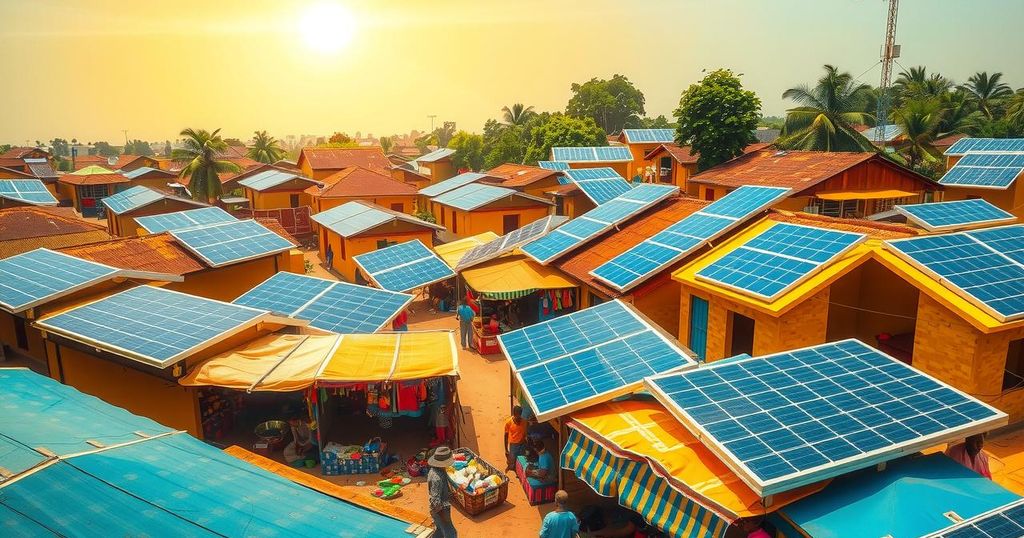The Impending Solar Import Ban: Implications for Nigeria’s Energy Crisis
The Nigerian government’s plan to ban solar panel imports threatens to escalate energy costs and limit access to solar energy, particularly for low-income families and rural areas. While the administration promotes local production, experts express doubt about the feasibility of this plan. Rising prices and limited local manufacturing options may compel individuals back to traditional fossil fuel sources, exacerbating pollution and energy poverty.
The Nigerian government’s plan to prohibit solar panel imports has raised significant concerns among citizens who rely on solar energy for various essential services. Chidi Okonkwo, a businessman utilizing solar panels for his grocery shop, articulated his discontent by equating the embargo to prohibiting umbrellas in heavy rain. In a nation grappling with intermittent electricity supply, solar energy represents a critical lifeline.
Despite the government’s initiative to prioritize local production under Presidential Executive Order No. 5, questions arise regarding its feasibility. Uche Nnaji, the Minister of Science and Technology, asserts that Nigeria possesses ample lithium resources necessary for manufacturing batteries, thus fostering local renewable energy development. However, energy experts caution that the ambition is reminiscent of the past land border closure aimed at smuggling control, which ultimately led to rising food prices for Nigerians.
Aisha Mohammed, an energy analyst, highlights that the impending ban could further inflate already high solar panel prices, consequently pricing them out of reach for many citizens. Jide Pratts, the country manager of Trade Grid, criticizes the ban as premature and emphasizes the need for local capacity to meet at least 70% of domestic demand before ceasing imports, alongside fostering market competition.
The nascent local solar manufacturing industry struggles to meet demand, and experts confirm that local products often come at a premium. Costs for solar systems range considerably, with basic setups priced around N400,000 and comprehensive off-grid solutions reaching N20 million, presenting variances in support for diverse energy needs.
As prices are expected to skyrocket by up to 60% due to the ban, affordability issues may compel families to revert to noisier and more polluting generator options. Rural communities, where solar systems often constitute the primary electricity source, may face dire consequences.
For individuals like Adebola Ogunleye, a frozen food vendor, the implications are stark—higher prices could drive customers away, posing a dilemma for businesses reliant on solar energy amidst economic strains.
The proposed ban on solar panel imports in Nigeria has prompted widespread apprehension due to its potential to exacerbate energy accessibility issues, particularly for vulnerable populations. While the government aims to develop local manufacturing capabilities, the current lack of infrastructure raises concerns about affordability and sustainability. Experts advocate for a more measured approach, emphasizing the importance of maintaining access to affordable solar energy solutions.
Original Source: businessday.ng




Post Comment